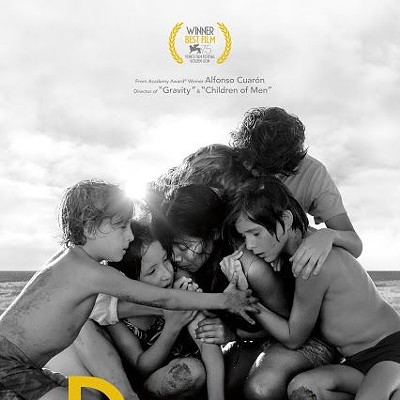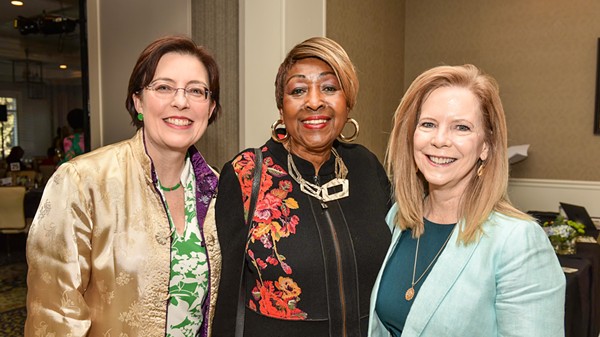THE ILLUSIONIST Set in Austria, The Illusionist stars Edward Norton as Eisenheim, an enigmatic stage magician so skilled at his profession that the locals suspect he might actually possess otherworldly powers. One of the few skeptics is Crown Prince Leopold (Rufus Sewell), a cruel ruler who sets out to prove that Eisenheim is a fake. He enlists the aid of the corrupt Chief Inspector Uhl (Paul Giamatti), yet matters become more tangled when it’s revealed that Leopold’s fiancee (Jessica Biel) was once Eisenheim’s childhood sweetheart. For a good while, The Illusionist is topflight entertainment, with its lush period setting, its assemblage of captivating magic tricks, and a delightful relationship between Eisenheim and Uhl, two men sharing a wary respect for each other (both Norton and Giamatti are excellent). But then the film makes the fatal mistake of morphing into a mystery, the type that’s agonizingly easy to figure out even before its gears can really be placed in motion. Viewers who can’t figure out the big twist should dig out those old Encyclopedia Brown paperbacks and begin rebuilding their sleuthing skills from there.
LITTLE MISS SUNSHINE In the rocker “We’re a Happy Family,” The Ramones present a dysfunctional family in which “Daddy’s telling lies, Baby’s eating flies, Mommy’s on pills, Baby’s got the chills.” The clan at the center of the Sundance hit Little Miss Sunshine isn’t much better off. Richard Hoover (Greg Kinnear) has developed a motivational program (“Refuse To Lose”) featuring the nine steps to success; unfortunately, no one is motivated to invest in it. His wife Sheryl (Toni Collette) has supported his endeavors but is running out of strength and patience when it comes to keeping everyone in line. Her gay brother Frank (Steve Carell) has just attempted suicide after being jilted by his lover, fired from his teaching post and losing a genius grant. Richard’s sex-fiend father (Alan Arkin) has just been kicked out of a posh nursing home for snorting coke and, presumably, getting too randy with the female senior citizens. And Richard and Sheryl’s teenage son Dwayne (Paul Dano), a Nietzsche fanatic, hates his family and hasn’t spoken a word in six months. And then there’s little Olive (Abigail Breslin), a perpetually gushing fountain of optimism who seems oblivious to the misery of those around her. When circumstances lead to her being selected to compete in the “Little Miss Sunshine” contest in California, the family members, not wanting to let her down, all pile into their rusty yellow van and head West. In other words, Little Miss Sunshine is yet another road picture about bickering family members, and if that sounds a bit too prefab (or at least a bit too RV), screenwriter Michael Arndt, his dialogue backed by an excellent ensemble cast, manages to adroitly mix up the expected comic schtick with moments of great clarity and insight.
SNAKES ON A PLANE For a while, it seemed like the greatest marketing ploy since The Blair Witch Project, as well as a revolutionary new way to make and promote movies. Come up with a catchy title, cast a way-cool actor, build the buzz over the Internet far in advance of the opening, let the online fanboys think they have a hand in actually shaping the finished product, refuse to hold critics’ screenings not because the product is unspeakably awful but because it guarantees more ink in newspapers, and then settle back as the record-breaking grosses pour in. Well, it all worked out except for that final point. The film’s lackluster box office take (no disgrace, but nothing special) should convince studios that banking on computer-weaned kids to actually leave their keyboards to venture out of the house and pay for a movie was, is and will remain a bad idea. As for the picture itself, it doesn’t quite deliver on its thrill-a-minute premise -- even star Samuel L. Jackson’s highly publicized quip about the “motherfuckin’ snakes” registers as much ado about nothing. Jackson stars as an FBI agent assigned to protect an eyewitness (Nathan Phillips) to a mob slaying; once the villains ascertain which flight they’ll be taking to make that important court date, they manage to fill the aircraft with rattlesnakes, cobras, boa constrictors. Director David Ellis and his three scripters have the title terrors chomp down on lips, eyes, breasts and even a penis, but given the overall lack of creativity invested in this project, it ultimately feels as rote and joyless as a typical slasher flick.
WORLD TRADE CENTER Oliver Stone is a divider, not a uniter. JFK alienated those who couldn’t stomach its political speculations; Natural Born Killers alienated those who found offense with its gleeful approach to serial killer shenanigans; and Alexander alienated, well, everyone with its sheer wretchedness. So the notion of Oliver Stone tackling a movie about 9/11 almost registers as a sick joke. “You think my past films were controversial?” one could almost imagine hearing him sneer. “People, you ain’t seen nothing yet!” So the most startling thing about World Trade Center is that it’s by far the least controversial movie Oliver Stone has ever made. It’s hard to find any trace of potentially incendiary material. Conversely, it’s also hard to get terribly excited over the final product. World Trade Center focuses on the Port Authority Police Department officers who would eventually be recognized as two of the only 20 people to be rescued from the rubble of the Twin Towers. September 11 begins as any other day for John McLoughlin (Nicolas Cage) and Will Jimeno (Michael Pena), but like everyone else on that fateful morning, they soon are having to digest incomplete messages involving an airplane crashing into one of the towers. Springing into action, they’re among the men who enter the building with the intention of aiding any potential survivors, even as they try to decipher additional news items suggesting that the second tower has also been hit by a plane. Timing’s not on their side, however, as the towers collapse just as they begin making their way up from the ground to the floors above. Their colleagues lose their lives, but John and Will somehow survive, though at a great price. Both men find themselves pinned -- and in great pain -- by the fallen debris, their only glimpse of the outside world a small shaft of sunlight that penetrates straight into the heart of the darkness. Realizing that it will take hours -- maybe even a day or two -- before they’re found and rescued, John and Will decide that they will count on each other’s company to survive, by talking their way through the pain and isolation until someone discovers them. Meanwhile, their wives (Maria Bello and Maggie Gyllenhaal) wait impatiently at their respective homes with other family members, eager to find out whether their spouses are dead or alive. I don’t think it’s too cynical to suggest that after the commercial and critical drubbing of Alexander, a whipped Stone was only too happy to serve up a sentimentalized tale almost certain to gain wide public approval. Working from a script by first-timer Andrea Berloff, Stone keeps his rabble-rousing methods fully in check -- even his typically frenetic shooting style has been replaced by a more somber m.o., with lengthy camera holds on saintly faces and nary a rapid jump-cut in sight. Unfortunately, the end result is a movie that feels oddly impersonal. That’s in striking contrast to this past spring’s United 93, the superb docudrama that provided audiences with a you-are-there immediacy. Every second of United 93 related in some way to the specific events of that day. On the other hand, replace the real-life characters of John McLoughlin and Will Jimeno with two fictional guys trapped in a collapsed building, and what you’re left with is a 1970s-style TV movie-of-the-week, the sort that invariably starred the likes of Christopher George or Lee Majors. For a more recent precedent, the firefighter flick Ladder 49 largely covered the same ground (in that snoozer, John Travolta and Joaquin Phoenix were the two lifesavers likewise chatting it up amid the bricks and flames). And despite the strong performances by Bello and Gyllenhaal, the numerous sequences centering on the strong-willed wives are no different than similar moments from countless WWII dramas, when the women are seen staring wistfully out of windows while their men are off trying to make the world a better place. Like United 93, World Trade Center also tries to keep politics out of the picture; instead, it focuses on the day as a shining example of American solidarity, before the government began reshaping the tragedy for its own exploitive means. Yet for all of Stone’s timidity, the material brings out some undeniable truths. The movie’s most poignant sequence comes when Stone chooses to briefly show the international community learning about this monstrous terrorist attack. It’s the moment when the U.S. had the sympathy and support of practically every country around the globe, and as we watch this segment, we’re heartbroken upon realizing how the Bush Administration has spent the last five years pissing away all that goodwill, in effect turning us into a country that’s now feared and despised rather than embraced and adored. A political perspective also appears through the character of Dave Karnes (Michael Shannon), a Marine who claims God personally ordered him to Ground Zero. Karnes is clearly a hero -- he’s the guy who found McLoughlin and Jimeno -- yet he’s also the sort of mindless warrior too easily swayed by those in charge. He swears vengeance against those who destroyed the WTC, a sentiment we can all share. Except a footnote reveals that he served two tours of duty in Iraq -- like so many others, fighting in the wrong war for the wrong reasons. Stone prefers that we don’t think too much of such sticky situations, and that’s his prerogative. This nonpartisan treatment certainly allows the movie’s wholesome humanity to shine through, which in turn leads to some strong sequences detailing the manner in which John and Will deal with their hellish situation. This is often powerful stuff, but in the final analysis, it’s still a sanitized, Hollywood version of 9/11. For a harrowing experience that feels more like the real deal, United 93 is the one to see. It hits DVD on September 5.
TALLADEGA NIGHTS: THE BALLAD OF RICKY BOBBY Like Spam, energy drinks and the music of Yanni, Will Ferrell is one of those acquired tastes that satisfy devotees while perplexing everyone else. A “B”- level Saturday Night Live player who, by virtue of one smash hit (Elf), found himself elevated to the same lofty playing field populated (presently and/or previously) by SNL superstars like John Belushi, Bill Murray and Eddie Murphy, Ferrell often seems adrift on the big screen, appearing in more flops than hits and frequently wearing out his welcome in even the smallest roles (as one example, the funny Weddings Crashers stopped dead in its tracks around the time he showed up for his extended cameo). So while some folks swear by his 2004 starring vehicle Anchorman: The Legend of Ron Burgundy, I’m not one of them. This one-note movie struck me as annoying rather than amusing, meaning I wasn’t exactly anticipating Ferrell and director Adam McKay reteaming for a comedy about a NASCAR redneck. My mistake. Talladega Nights: The Ballad of Ricky Bobby is often uproarious, and it’s clever in a way that Anchorman rarely attempted. While it never reaches the giddy highs of last summer’s premiere stupid-smart comedy, The 40-Year-Old Virgin, it’s consistently pleasurable and offers a steady stream of laugh-out-loud moments. You won’t respect yourself the next morning, of course, but while it unfolds, you’ll be happy to lower yourself to its level. Like Ron Burgundy, Ricky Bobby is also an egotistical, none-too-bright boor. “I piss excellence,” he declares, and his standing as NASCAR’s best driver certainly signals that he’s excellent at something. He has a best friend (John C. Reilly) who’s even dumber than he is, a blonde trophy wife (Leslie Bibb) who’s always looking to get ahead, and two obnoxious sons named Walker and Texas Ranger (“But we call him TR for short”). Ricky has spent his life trying to work out issues with his deadbeat dad (Gary Cole, delivering the film’s shrewdest comic performance), but that doesn’t excuse his repellent behavior and the way he takes everyone and everything for granted. Clearly, Ricky Bobby is primed to receive a comeuppance, and it arrives in the form of Jean Girard (hilarious Sacha Baron Cohen), a French homosexual race car driver whose prowess on the track leads to Ricky’s fall from grace and his subsequent (and humbled) climb back to the top.
THE DESCENT What’s with the plot, centered on a group of people trapped in a cave with a shadowy menace? Didn’t we just see a film like this, which cut to the chase by actually calling itself The Cave? Nope, not even the hype proclaiming this as one of the best horror films in decades could stir anything in me beyond weary resignation. Imagine my surprise, then, to discover that The Descent is indeed worth its weight in thrills and shudders, as writer-director Neil Marshall has produced one of the finest horror yarns in many a full moon. The central character is Sarah (Shauna Macdonald), a Scottish woman who, as the picture opens, suffers a terrible loss. Cut to a year later, when two of Sarah’s close friends, the easygoing Beth (Alex Reid) and the competitive Juno (Natalie Mendoza), talk their fellow outdoor enthusiast into tagging along on a spelunking expedition deep in the Appalachian mountains. They’re joined by three other women -- Juno’s feisty protégée Holly (Nora-Jane Noone) and sisters Rebecca (Saskia Mulder) and Sam (MyAnna Buring) -- and together the sextet embark on an adventure that they hope will not only produce the desired sense of merriment but will also allow Sarah to move past her recent tragedy, even if only temporarily.
MIAMI VICE Since his days as a guiding light on the trendsetting TV series from the 1980s, Michael Mann has established himself as an accomplished moviemaker with such hits as The Last of the Mohicans, Heat and The Insider. So his decision to bring Miami Vice to the big screen wasn’t the act of a desperate has-been eager to recapture some of his former glory. Mann has instead elected to turn his Vice into something altogether leaner and meaner -- if not necessarily tighter. The movie runs approximately 2-1/4 hours, and audiences expecting a zippy action flick will find this bo-o-o-ring indeed. Yet those who can tune into its wavelength will frequently find themselves fascinated by its beautifully composed shots, its startling bursts of violence and its baffling narrative segues. The film centers on Miami cops Sonny Crockett and Ricardo Tubbs (Colin Farrell and Jamie Foxx in the roles once upon a time played by Don Johnson and Philip Michael Thomas) as they travel through the Americas from Miami on down to take care of some particularly nasty drug kingpins. Along the way, Crockett falls for one of the drug outfit’s power players (the great Gong Li, here struggling with the English language and often losing), Tubbs racks up some quality time with a fellow enforcer (Naomie Harris), a snitch leaks compromising info to the villains, and, in one spectacularly staged scene, a group of trailer-park skinheads get theirs in a bloody fashion. It would have been so easy for Mann to cash in quick by making a trashy spectacle like Bad Boys II or Con Air. Instead, he views Crockett and Tubbs as nihilistic warriors so embedded in their careers that they only need their weapons, their clipped cop-cliche-lingo and each other to survive. There’s no back story to any of this: What we see is what we get. Unfortunately, such iconic images are only as good as the movie stars propping them up, and while Foxx and Farrell can glower with the best of them, neither of them possess the weight of personality or aura of invincibility that, say, Clint Eastwood or John Wayne could summon without breaking stride.
THE ANT BULLY The Ant Bully has talent to burn: Julia Roberts, Nicolas Cage, Meryl Streep and Paul Giamatti. But as was the case with Bruce Willis in the recent (and inexplicably popular) Over the Hedge, this is yet another example of hiring big stars for the sole purpose of -- what exactly? Do 10-year-olds really care that acting legend Meryl Streep is voicing the role of the Ant Queen? Wouldn’t they rather hear Raven or Hilary or one of the other kids’ cable TV stars in the part?
MONSTER HOUSE Monster House’s protagonist, DJ (voiced by Mitchel Musso), is a shy outcast who’s light on the brawn but heavy on the brains. He’s the only one in his neighborhood who realizes that something’s not right within the creepy house that’s directly across the street, a rotting mansion owned by a nasty old man named Nebbercracker (Steve Buscemi). What initially appears to be a straightforward haunted house tale morphs into a haunting tale about love, retribution and acceptance, with a backstory that’s as affecting as it is unexpected.
PIRATES OF THE CARIBBEAN: DEAD MAN’S CHEST At 145 minutes, Dead Man’s Chest ends up providing too much bang for the buck. The effects-driven action scenes are clearly the picture’s highlights, and they alone make Dead Man’s Chest worth the price of admission. Johnny Depp’s still a lot of fun as the scurrilous Jack Sparrow, but a headline-grabbing performance that seemed blazingly original the first time around no longer has the power to surprise. Orlando Bloom’s Will and Keira Knightley’s Elizabeth are even less developed.ƒn
LITTLE MAN The visual effects in Little Man won’t put the wizards at Industrial Light & Magic out of business, but it’s only fair to note that they’re surprisingly effective. That’s the good news. The bad news is that they’re in the service of a feeble comedy that’s nowhere near as outrageous as one might reasonably expect from the makers of Scary Movie and White Chicks. Marlon Wayans stars as Calvin Sims, a dwarf whose first action upon being released from prison is to steal a valuable diamond. The heist goes off as planned, but subsequent developments lead to the priceless bauble ending up in the home of unsuspecting couple Darryl and Vanessa Edwards (Shawn Wayans and Kerry Washington). In order to gain access to the house and take back the diamond, Calvin disguises himself as a baby who’s been left in a basket on the Edwards’ front porch. Naturally, before the door can be opened, a dog wanders along and urinates all over Calvin’s face. That’s a mere warm-up to the gags that take place after Calvin infiltrates the Edwards household, stale bits involving (but not limited to) comments on the size of the baby’s manhood, breast-feeding, repeated blows to Darryl’s crotch and, of course, the changing of Calvin’s diaper. A robustly performed sequence involving a rectal thermometer is mildly amusing, but the rest is rather slapdash and bare, despite Marlon’s Herculean efforts to turn Calvin into a notable comic creation. Yet the overall impression is that director Keenen Ivory Wayans felt constrained by a PG-13 rating when he really had an R in mind.
ƒn

























